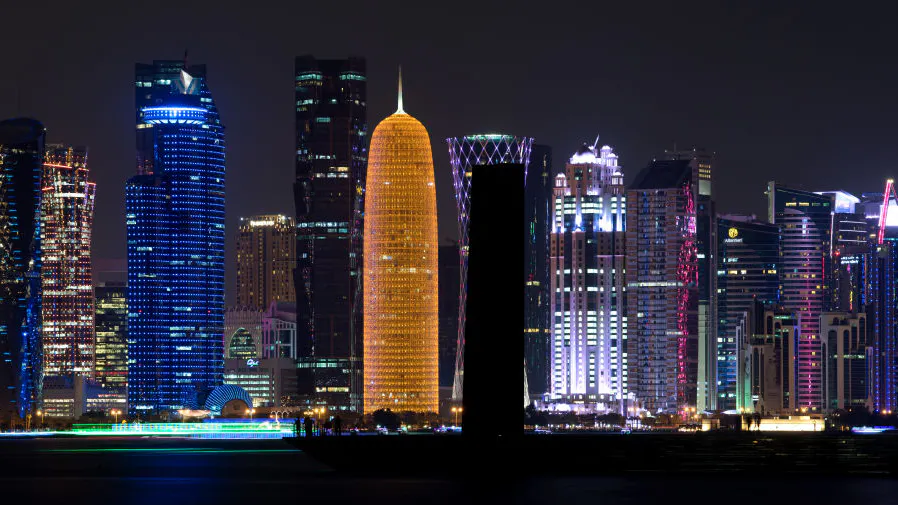The realignment of the 21st century Middle East can more easily be understood by separating the countries that have chosen to embrace nationalism versus those that have doubled down on the doctrine of Islamic supremacism — otherwise known as Islamism. U.S. Arab allies in Saudi Arabia, the United Arab Emirates, Bahrain, Egypt, Jordan, and others have collectively moved in near lockstep with President Trump’s foreign policy doctrine, as expressed in his landmark Riyadh speech, in which the commander-in-chief called upon our regional partners to “drive out” the radicals in the Middle East and from within their own governments. Other paper allies, like Qatar and Turkey, have chosen to embrace those radicals, fund their revolutionary movements, and stir broader regional chaos.
The nationalist movement in the Middle East has convinced many of our Arab allies to largely abandon past policies that involved aiding and abetting troublesome regional groups and Islamist movements. Saudi Arabia, once a noted regional troublemaker, has largely returned to a “moderate Islam” that disavows the fundamentalist radical movements both inside and outside Riyadh. Additionally, our regional allies have invested heavily in internal development and advancement, which has tremendously bolstered individual rights and other human freedoms (including the advancement of women’s rights) inside of their respective nations. These policies have encouraged cooperation and healthy competition between fellow partner nations. The embrace of the concept of sovereignty has become a regional gamechanger for the promise of long-term peace and security, but that doesn’t mean there aren’t any holdouts.
Qatar has outright refused to embrace the regional nationalist movement. Instead, Doha continues to not-so-quietly abuse the sovereignty of its neighbors, meddle in their affairs, and incite Islamist rebellions throughout the entire region. Though Qatar claims to be a U.S. ally in good standing, evidence remains plentiful that the ultra-wealthy ruling family in Doha continues to harbor international terrorists, give major media platforms to anti-American hate preachers, and provide regular aid and support for U.S.-designated terrorist organizations. This is because Islamic supremacism remains the core ideology of Qatar’s ruling class.
This developing nationalist-Islamist divide in the Gulf has acted to separate Qatar from its once-reliable regional partner and push the country even further into Iran’s orbit.
Yes, the rulers of Qatar are Sunni fundamentalists, while the mullahs in Tehran are Shia supremacists. But this is only a minor hurdle when compared to the higher-level competing ideologies of Islamist revanchism and reformist nationalism. Iran and Qatar remain ideologically linked through their shared principle of Islamic supremacism, and a shared disdain for the West and its values.
Perhaps the most well-known modern example of this Sunni-Shia extremist partnership is the long-running alliance between Al Qaeda and Iran, which have on many occasions collaborated in terrorist attacks and long-term plots against their common enemies. In a 2007 letter, since-killed Al Qaeda chief Osama bin Laden infamously described Iran as “our main artery for funds, personnel, and communication.”
While there’s no discounting the ideological connection in the Qatar-Iran nexus, the two nations also have overwhelming economic links, starting with their shared territorial occupation of the world’s largest gas field. With its economic ties to Tehran in mind, Qatar has consistently pushed back at the idea that Iran should face any economic sanctions over its support for terrorism. In May, Qatar’s foreign minister advised that “dialogue,” not sanctions, is the answer to the Iran issue. Qatar itself has regularly thwarted U.S. sanctions against Iran to continue to do business with the regime. In fact, Qatar values trade with Iran to such a degree that Doha has publicly stated it would quit the powerful OPEC cartel before severing ties with Iran. During the recent Gulf Cooperation Council blockade against Qatar, Iran (alongside Turkey) served as an integral lifeline for Qatar, allowing the regime to thwart a regional trade embargo. Since 2016, trade between Iran and Qatar has doubled or more across several sectors.
Both Iran and Qatar have dedicated much of the past few years to sowing chaos across the Middle East. Iran, for its part, has launched direct attacks (through its proxies) against Arab nations. Iran’s Islamic Revolutionary Guard Corps and Hezbollah have accelerated the ongoing genocide in Syria. Iran-backed Houthi insurgents in Yemen are launching direct attacks upon Saudi Arabia and other Arab nations. Iran-backed Palestinian Islamic Jihad and Hamas are antagonizing Egypt and Israel by banging the war drums in Gaza. Yet through it all, Doha has continued to insist upon closer relations with Iran. The Qatar-Iran relationship has not at all been fazed by recent direct Iranian militant and proxy attacks upon Arab oil tankers and vessels — and even the shooting down of an American unmanned aerial vehicle in the Gulf. Earlier this month, as the U.S. and our allies formally condemned Iran for its state-sponsored terror, Qatari leaders were singing the praises of the Tehran regime. Doha even explicitly rejected the outcome of an emergency Arab summit condemning Iran in the wake of the terrorist attacks on the Gulf vessels and Houthi rocket strikes against an international airport in Saudi Arabia.
Qatar and Iran have a shared ideological commitment to imposing regional carnage. And these shared principles make up the DNA of their respective leaderships. The Middle East has separated into two primary ideological camps. To Qatar and Iran, Islamic supremacism — and not reformist nationalism — is the way forward for the region. Qatar has remained incredibly resilient in rejecting pressure from America and our regional partners. It’s time we recognize that Qatar, by cozying up to Iran and its terrorist allies, has breached the point of no return.
Jordan Schachtel is a foreign policy analyst and investigative reporter.

.png)
.png)

